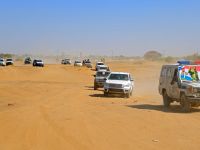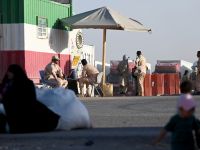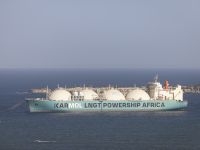Six days of clashes, pitting Israeli forces against Palestinians and Israeli Arabs, have caused some 60 deaths and more than 1,000 injured, most of them Palestinians.
Following is a chronology of the main incidents up to Monday evening:
September 28:
A visit by right-wing Israeli opposition leader Ariel Sharon to Al-Aqsa Mosque meets with violent resistance from Palestinians. Police open fire on the demonstrators, wounding several. Some 25 police are slightly injured. Palestinian leader Yasser Arafat brands Sharon's action "dangerous" and an affront to Islam's holy places.
September 29:
Seven Palestinians are killed and 220 wounded when Israeli security forces fire on thousands of Palestinians after invading the mosque area. The Israelis accuse the Palestinians of stoning Jews praying at the Wailing Wall below. The Palestinians condemn a "premeditated crime" and the use of live rounds. Israeli Prime Minister Ehud Barak puts the blame on the Palestinians.
September 30:
The violence spreads to the West Bank and Gaza Strip, causing 16 Palestinian deaths and more than 500 injured. On the Israeli side, 26 police and troops are reported hurt by flying stones.
Arafat accuses the Israelis of shooting to kill, while Barak says they are exercising maximum restraint. The Palestinian Authority calls on the United Nations to set up a commission to determine blame.
October 1:
The clashes become pitched battles, with the Palestinians, many of them members of the security forces, resorting to firearms and the Israelis responding with helicopter gunships and missiles. The toll is 13 dead and more than 300 wounded among the Palestinians, while an Israeli border guard, who happens to be an Arab, also dies. The violence also spreads to Arabs in northern Israel, one of whom is killed.
The Arab League says it will ask for a UN inquiry.
Sharon denies responsibility for the violence, blaming it on the Palestinians.
Hard-line groups Hamas and Islamic Jihad call for a resumption of the intifada, or uprising, which rocked the territories for six years until the 1993 Oslo peace accords.
October 2:
The violence continues in the West Bank and Gaza Strip and intensifies in Israel. The dead include nine Israeli Arabs -- two of whom succumbed to wounds inflicted the previous day -- an Israeli civilian killed in the West Bank and a Palestinian from Jordan. A second member of the Israeli security forces also dies in the West Bank.
Some 50 people are wounded when Israeli helicopter attack apartment buildings and other targets in Gaza City.
Barak again blames the Palestinians but says he still wants to negotiate a peace deal once the violence stops.
Washington announces that it wants to broker new peace talks, while Paris and Berlin accuse Sharon of deliberate provocation and Pope John Paul II pleads for peace.
Five Arab countries call for an urgent Arab summit, while Jordan opens its hospitals to the Palestinian wounded and other solidarity movements are organized.
October 3:
A spokesman for Israeli Prime Minister Ehud Barak announced in the morning that Barak and Arafat would meet in Paris on Wednesday in response to an American initiative, but the Palestinian's international cooperation minister said late afternoon that there would be no such meeting.
Despite a ceasefire announced early in the morning, the confrontations continued. Four Palestinians were killed in the Gaza Strip, where Israeli helicopter gunships fired rockets at Palestinian targets. There were also violent clashes in the West Bank.
A senior Palestinian military figure in Lebanon threatened to launch armed operations against Israel if the Jewish state does not end its "massacre" of Palestinians.
The father of a 12-year-old Palestinian boy whose shooting death Saturday was filmed by a French television crew and who himself was gravely wounded, called for the "murder" of his son to be avenged and for Israel to be judged. Images of the boy's death in his father's arms caused shock across the world.
The Israeli government rejected any international investigation of the incidents - NICOSIA (AFP)
© 2000 Al Bawaba (www.albawaba.com)







